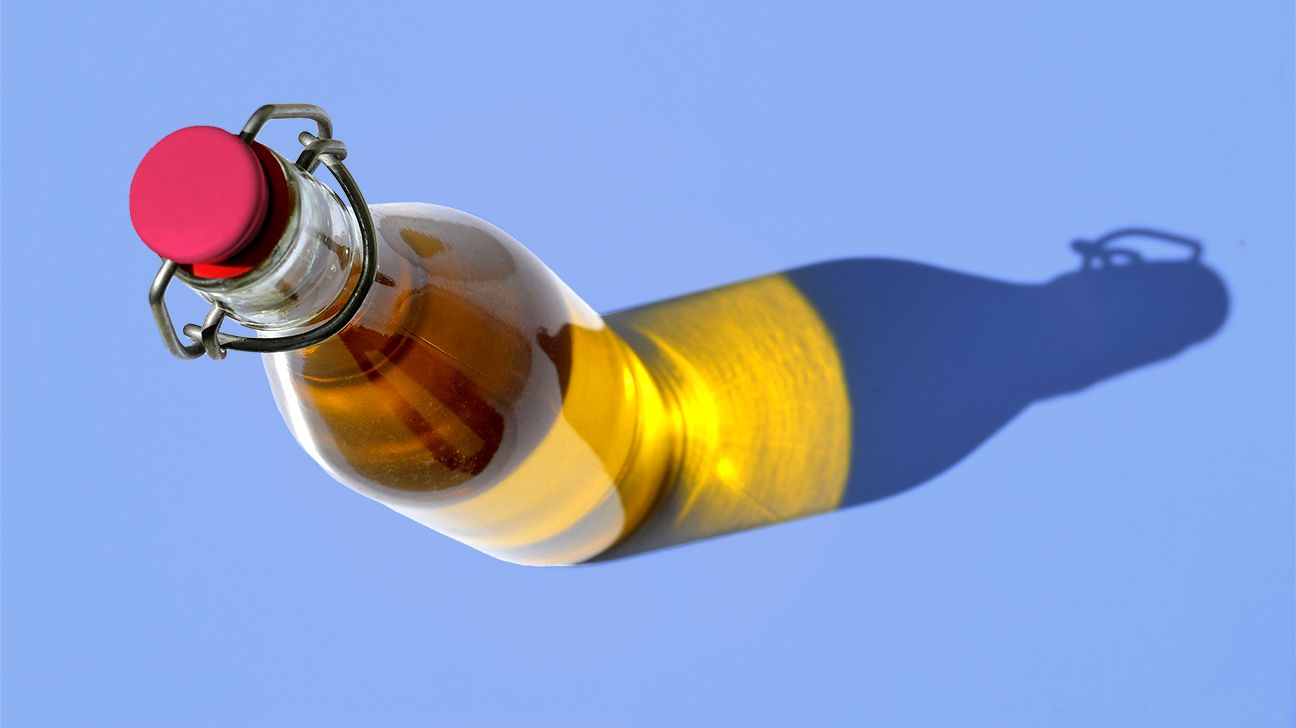Shopping for beauty supplies is fun and all, but why drop upwards of $100 on fancy-schmancy skin care when you can find what you’re looking for in your kitchen pantry?
Our latest DIY skin care investigation dives into one of our favorite cooking ingredients: olive oil.
Some claim that olive oil can effectively erase acne. If putting oil on your face feels counterintuitive, we wondered the same thing. Will slathering oil on pimples make them go away — or will it create actual pizza face? Let’s find out.

Aside from potentially getting rid of acne, olive oil may have a few other benefits.
- It’s hydrating and can soothe dry, irritated skin.
- By keeping cells hydrated, skin can look plumper (think the opposite of saggy).
- It may act as an antioxidant and help prevent UVB-induced skin damage and skin cancer.
- It’s a natural anti-inflammatory that can help heal wounds, such as acne scars.
Allegedly, using olive oil on your skin goes hand in hand with oil cleansing, a popular skin care method that is supposed to help get rid of acne.
Oil cleansing is what it sounds like: Users massage an oil or oil-based cleanser onto skin to dissolve the pore-clogging oils (aka sebum) already present.
Since acne is often caused by excess sebum and pores clogged with dead skin cells, using oil against oil can help lift the gunk up and away.
Oil cleansing is also a good way to ensure that you aren’t stripping your skin of all oil. If that happens, your skin goes into overdrive and produces too much oil, which can cause acne. You want to find a happy medium.
If you want to try using olive oil on your acne, it’s pretty easy to do. You can try the below routine each night before bed. Expect to wait a few days before noticing results.
- Pour about 1/2 teaspoon of oil into your hand and apply it all over your face, gently massaging it into your skin for a few minutes.
- Allow the oil to sit on your face for about a minute.
- Dip a washcloth into warm (not hot) water.
- Apply the washcloth to your face and hold it there for about 15 seconds so it starts breaking down the oil.
- Gently wipe the oil off your face, being careful not to pull.
- Repeat until all the oil is wiped off.
- Follow up with a gentle cleanser if you’d like.
Unfortunately, there’s some research out there that shows that olive oil may not be the inexpensive miracle acne solution you’ve been looking for. While it may have its advantages, there are plenty of negative side effects to consider as well.
Olive oil might actually cause acne
One older study in animals found that an ingredient in olive oil called oleic acid can act as a comedogenic, which means that it can block pores and cause blackheads. This is, obviously, the opposite of what you want.
Other research from 1993 found that olive oil has been shown to boost the activity of acne-causing bacteria by helping the bacteria to attach themselves to the skin follicles.
It may irritate or even cause eczema
A small study found that using olive oil on your skin may cause significant damage to the skin barrier, and may promote the development of atopic dermatitis, also known as eczema. It can also exacerbate existing eczema. If you have very sensitive skin, you may want to skip the olive oil.
It might dry out your skin
Olive oil is said to be intensely hydrating, but for some people, it may be the opposite.
Recent research has found that aside from being comedogenic, the high amount of oleic acid in olive oil can weaken the skin’s barrier and make skin drier. Another small study found that oleic acid may cause water loss.
All things considered, olive oil may not be the best pantry staple to incorporate into your skin care routine.
Olive oil contains too much oleic acid to be super effective in managing acne, and the negative side effects don’t seem worth it.
Research has found that oils with low oleic acid and high linoleic acid are the most effective at hydrating and protecting skin, as well as reducing skin irritation and inflammation.
Natural oils that may be a better choice for your skin include sunflower seed oil, argan oil, avocado oil, coconut oil, jojoba oil, rosehip oil, and soybean oil.
Olive oil is said to have anti-inflammatory properties and some believe it may banish acne, hydrate skin, and protect from future damage.
It can be used as part of an oil cleansing method, which means you rub oil into your skin in order to unclog pores and remove excess sebum.
Unfortunately, research has found that olive oil may not be the best skin care option due to its high levels of oleic acid. Olive oil may break down the skin barrier, irritating sensitive skin, causing dryness, and increasing acne-causing bacteria.

